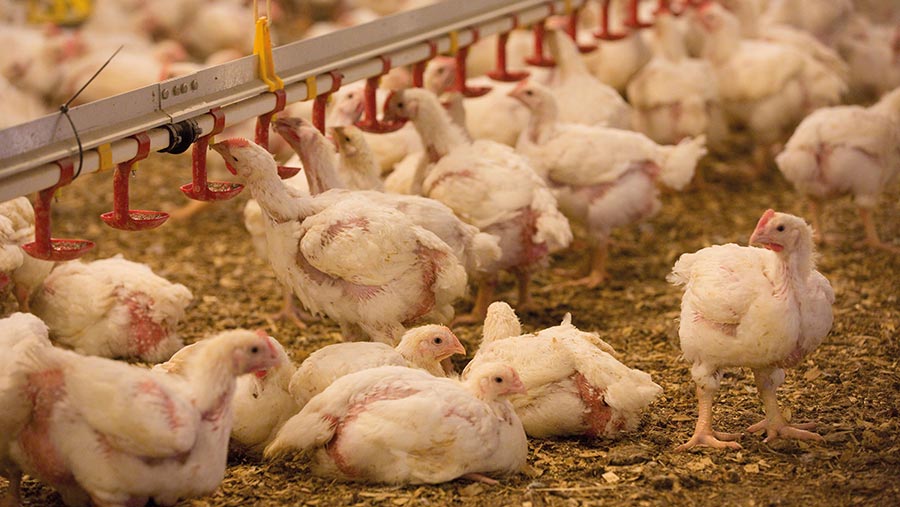NFU demands better compensation as bird flu ‘clobbers’ sector
 © Tim Scrivener
© Tim Scrivener Further improvements are needed in the way compensation is paid to poultry farmers affected by the avian influenza epidemic.
This, according to NFU deputy president Tom Bradshaw addressing the 55th Egg and Poultry Industry Conference in South Wales on Monday (31 October), is essential if businesses are to survive until such time as a vaccine becomes available
He said the improvements introduced by Defra last week – which ensure the valuation for birds that have to be culled is made earlier – was still not adequate.
See also: Poultry housing order to be introduced across England
Previously, compensation was based on the number of healthy birds in the flock at the end of culling – though already dead and clearly sick birds are not covered.
Delays
But, given delays to the onset of culling following confirmation of the disease – something that has been exacerbated by the lack of vets and stretched culling resources – some producers have not had many birds still alive by the time the slaughter teams arrive.
Defra therefore agreed to bring the valuation forward, to when culling is first given the go-ahead by the chief vet.
But this is still not happening until 48 hours after confirmation of the disease, as the chief vet also has to weigh up other risk factors, during which time more birds may have died and compensation been lost.
This is particularly an issue for the turkey sector, given the speed with which birds die from the disease.
Mr Bradshaw said the poultry sector was facing its greatest challenge for a generation, and called for more government support “so we can build a bridge to the other side of AI, to a point where we have a vaccine and are out of the energy crisis”.
“Last year was challenging enough with 158 cases of avian influenza, but in October alone we have seen 86 outbreaks,” he said.
“The compensation so far is simply not adequate. The announcements last week will change when compensation is payable, but in our view it is still not where it should be.”
With insurance providers also withdrawing from the marketplace, it is absolutely crucial compensation is fit for purpose, otherwise poultry producers will be unwilling or unable to restock.
Compensation should therefore be payable as soon as the disease is confirmed, not 48 hours later.
Defra chief vet Christine Middlemiss acknowledged that the industry was where it wanted to be, but the compensation on offer should still encourage early reporting of cases.
She also indicated that more resources were being channeled into the veterinary and culling operations to speed up the process.
“We’re pulling some people away from their ‘business as usual’ work – not just our own permanent staff vets, but private vets are being pulled into the system,” she told the conference.
This involves training, so the extra pairs of hands may take some time to arrive, “but it is happening”.
16-week rule extension
As well as compensation, industry organisations are pressing for a review of marketing legislation, which currently allows eggs to be sold as free-range for up to 16 weeks after compulsory housing of birds is imposed.
A housing order for England only was announced by the chief vet at the conference, taking effect from next Monday (7 November) to help combat the disease.
But British Egg Industry Council chief executive Mark Williams said the 16-week rule “clobbered” the sector financially, when eggs lost their free-range status.
The 16-week period would end in late February and Mr Williams predicted there was “no way” birds would be safe to go outside then given the virulence of the current H5N1 strain of avian influenza.
He therefore urged Defra to confirm that the same labelling rules could be applied as with the last housing order, so free-range packs could still be allowed, with just the label changed to classify them as “barn” eggs.
